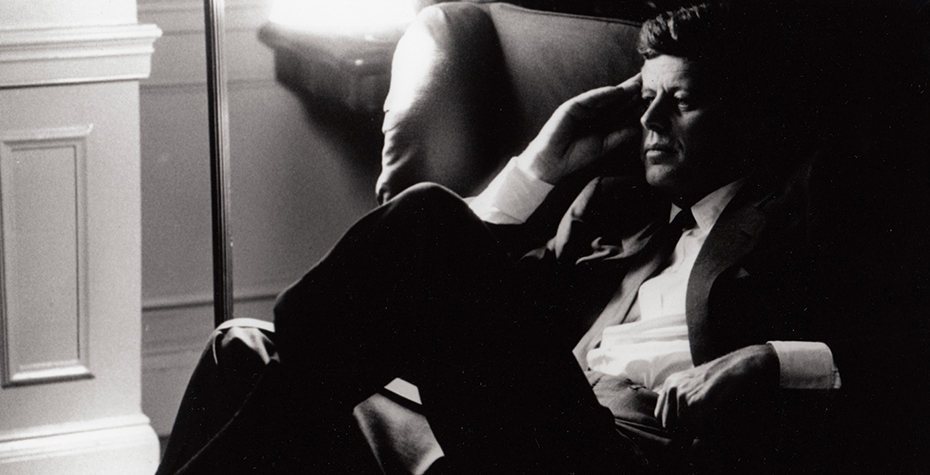On 50th Anniversary of His Death, the Nation Remembers President John F. Kennedy

November 22, 1963, marked a turning point in American history. Fifty years after the death of President John F. Kennedy, a fascination with the man remains.
“He was the first president born in the 20th century and he was smart and he was funny and he was handsome,” said ABC News Political Correspondent Cokie Roberts ’64 in an interview on ABC. “He had this gorgeous wife and these precious babies and it was if the country went from black and white to color. And for those of us who were young people it was so exciting. We sort of look back on it as a rosy time. We always look back through rose-colored glasses, but in this case there’s a certain amount of truth to it.”
Roberts was a senior at Wellesley at the time of the assassination and said she remembers the day “like it was yesterday.” She said everyone wonders what would have been different had Kennedy not died that day, but added, “A very good thing came out of it, which was the passage of the 1964 Civil Rights Bill, which I don’t think Jack Kennedy could have done...”
Roberts continued, “I think it took the savvy of Lyndon Johnson to get that done. And it also took the assassination and the sense of doing something for the martyred President that helped get the civil rights bill through,” adding that there was no reason to assume that JFK would have been re-elected in 1964.
***
The late Francis Turman Tidey '60 was in Dallas on the day of the assassination. The young Wellesley graduate and her husband saw Kennedy get off the airplane; the couple had tickets to see the President speak later in the afternoon. "Kennedy looked extremely tan and healthy," she wrote. "Pat [her husband] and I marveled over how young and athletic he looked. He had an expression on his face which looked like slight amazement to see such warmth in Dallas." What happened next, Tidey recorded the next month in a heart-rending, insightful letter to family and friends that was published today for the first time in the National Journal. In the letter, Tidey mused on the effects that the assassination had on the city's psyche, expressing frustration with the refusal of many Dallas residents to acknowledge the city's failures, especially in the realm of race relations.
***
“Nostalgia colors people’s recollections. So, to have died in such a terrible way, also colors our views,” said Marion Just, William R. Kenan, Jr. Professor of Political Science, in an interview with Metrowest Daily News/Gatehouse Media, discussing the highly controversial social movements that were beginning just as the president died.
“Perhaps because he was denied the chance to grow old, I associate JFK with youth and with the confidence of a nation preparing to meet the challenge of civil rights at home and the danger of nuclear war abroad,” said Madeleine Korbel Albright ‘59 to TIME. “Neither saint nor superman, Kennedy was still our most charismatic president, a leader who inspired a generation to seek public service, who sought to further the cause of justice and peace, and whose picture could be found on kitchen walls from Buenos Aires to Bombay. Since 1963, many have tried to imitate him, but he has not been replaced.”
Another question some Americans continue to explore is whether we know the entire story of the assassination. Wellesley Professor of Political Science Tom Burke will appear on WCVB’s Chronicle on Friday, November 22, to discuss, as a social scientist, the “enduring appeal of conspiracy theories.” Chronicle is shown locally on channel 5 at 7:30 p.m.
